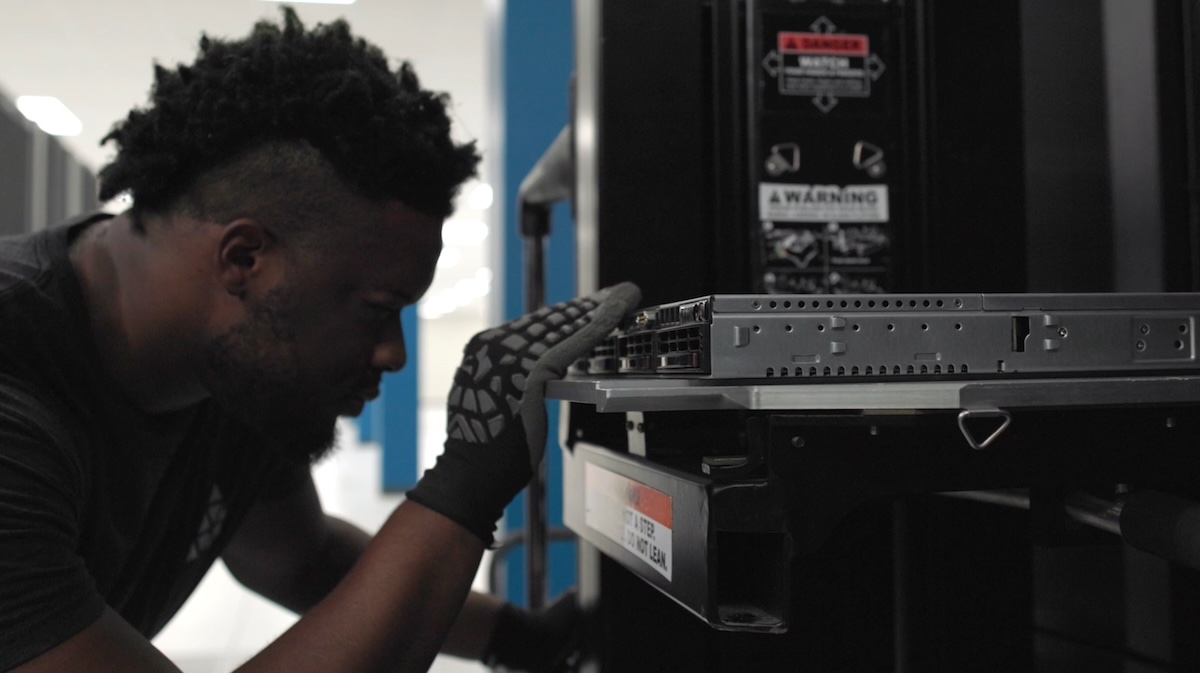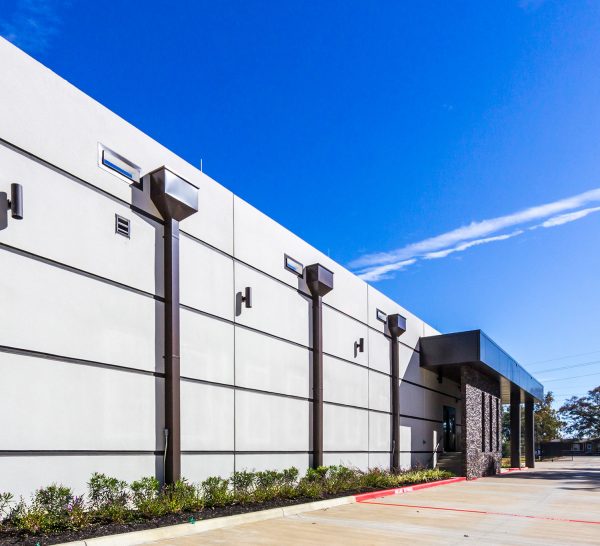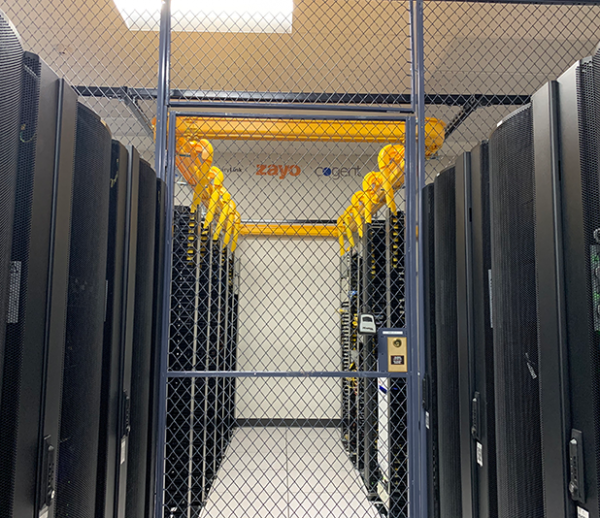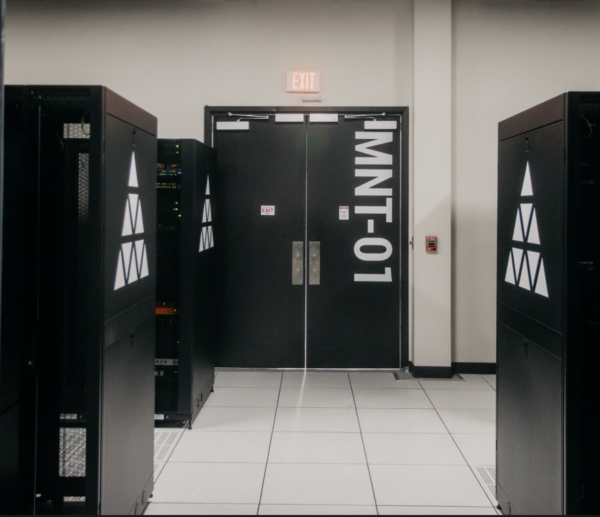Managed colocation is a service that enables organizations to lease out space in a colocation center to house their hardware – and essentially leave the rest to the colocation provider. With managed colocation, the provider will take care of the set-up as well as day-to-day management and maintenance of critical infrastructure. This includes rack and cable management, monitoring, power and cooling expertise and taking care of any additions or migrations when necessary.
TRG Datacenters are managed colocation experts. As a baseline, our Houston Data Center facility provides a fault tolerant environment for your colocation needs along with free remote hands 24/7, and free cross connects. But we also offer much more than that. For customers who want a fully managed colocation service we have Colo+. With our managed colocation services, we can manage the migration overnight within 12 hours (even on a Friday night), we have a unique rack and cabling system designed to eliminate operational risk from day 1, and all adds, moves and changes are included, so you can focus on innovating and driving core operations in your business.
One of the key benefits of managed Colo is the fact that businesses can make use of established and mature processes to protect valuable assets. From the point at which gear is moved, everything is fully taken care of.
Insurance is provided for the journey, which is vitally important because umbrella policies will not cover employees moving equipment – even if they’re using company vehicles. And that’s something that few IT staff consider. A managed provider thinks through risks like these on behalf of your business, organizing the correct insurance for migration so that your company is never left taking on liability.
Two weeks in advance, our team will be running through the run book. We’ll have an established workflow and an established process, and we’ll be getting finer details figured out to enable our team to walk yours through everything that needs to happen, when it needs to happen and how it needs to happen. Our unique processes cover everything that could possibly go wrong, including checking for duplicated port assignments well in advance – and that’s just the start.
To explain how managed colocation really differs from other methods, we need to consider how it stacks up against other modes of datacenter service, and what it offers that these services don’t. So, let’s start by comparing managed colocation with traditional colocation.
Let’s take a look at how managed colocation stacks up against other modes of datacenter service.
Managed Colocation vs. Traditional Colocation
With traditional colocation, clients get secured physical space, power, and network connectivity — and that’s it. You get reliable infrastructure but the burden of managing and maintaining IT systems is still on your shoulders.
Managed colocation, on the other hand, includes the management of all physical aspects of an IT system, along with resources. As an example, our team has highly specialized gear which it uses to move equipment safely. We also have highly specialized processes – and skilled teams capable of managing colocation seamlessly. The end result is a reliable outcome that businesses can depend on.
We’ve touched on the established processes we use; these processes are vitally important. Because the loss of data would be devastating for any business. Our technicians don’t replace IT staff when it comes to things like logging into gear and managing it in that respect, but we do manage processes on your team’s behalf to ensure the safety and security of the move.
With the right colocation center, managed colocation ensures operational efficiency and system uptime without taxing internal resources as much as traditional colocation.
There are benefits and drawbacks of both types of service, of course. On the one hand, fully managed services have more upfront expenses than traditional colocation and might offer less control for some clients, depending on their IT activities. On the other hand, traditional colocation requires more resources to be devoted to infrastructure management. Even if you already have these resources within your business, traditional colocation can still end up costing more in the long run.
There’s a lower risk of equipment damage in managed collocation, and it also allows businesses to free up teams – so that they can put their time to better use within the company. IT staff no longer need to make long drives to data centers to complete simple tasks like moving a capable. With managed colocation, teams like ours can do that on behalf of in-house staff. And that means that in-house staff can focus on higher value tasks, like network engineering, administration and serving the organization they work for.
The specialized cable management provided through managed colocation also leaves far less room for error. Bear in mind that managed colocation providers invest in features to improve reliability. Things like sleeve inserts on every power cable and locking receptacles which are built to protect the data center, will also protect its customers.
With managed colocation, operators are ultimately invested in the success and reliability of a company’s rack. Operators and customers alike are incentivised to make the move a successful one – and that tends to mean far fewer mistakes and failures along the way.
Managed Colocation vs. Traditional Colocation: The purchasing friction problem
From an organizational perspective, when discussing the choice between traditional and managed colocation it’s important to think about two things: skew management and purchasing friction.
Think about what it takes to build a full rack from the ground up. You could have five different lengths of power cables, PDUs, transfer switches, cage nuts, cage screws, rails, patch panels, fibers in different lengths, ethernet cables in different lengths, cable management both vertical and horizontal.
You’ll have labels, label makers, testers for the cables and everything in between. There are so many things that an organization has to think about purchasing the correct numbers of, and whenever a change is made an inventory needs to be updated to reflect this. Orders need to be placed in good time for any changes required – and that’s just the tip of the iceberg.
Realistically, you could be adding ten steps to every process by opting for traditional colocation. Bear in mind that there are more skews associated with the buying of the rack than there are with the IT hardware itself – and these are all $0.25 to $40 items. So, a huge amount of time needs to be invested in managing relatively low value complexity.
Let’s think about what that means for purchasing friction. The traditional method means that every time a change is made something will need to be bought from somewhere. So, an internal purchase order will have to be made, or a new contract signed. Costs need to be evaluated case by case, adding further complexity to every change.
With fully managed Colo, issues like these completely disappear. Low value, simple, yet ultimately very important changes are taken care of on behalf of your business – no questions asked. There’s no need to write a new PO every time you want to move a cable. There’s no need to find new quotes from salespeople every time your company needs to install a new server.
The contractual friction created by decisions like these is tremendous, and the indirect impact of this friction on team member’s time too is vast. And with fully managed Colo, that friction is totally eliminated, as is the level of complexity it adds to running a business.
Ultimately, the choice between managed and traditional colocation depends on your organization’s fiscal flexibility, in-house expertise, and strategic inclination towards IT management. But if you want to keep things simple, managed colocation could be just what you need.
Managed Colocation vs. On-Premises
Managing an on-premises data center gives you total control over your IT infrastructure. However, on-premises is expensive and demanding of talent, knowledge, and time. Your administrators need to constantly stay informed about the complex and ever-changing world of networking technology and processes, necessitating a continual investment in training and certifications. For many legacy giants, on-premises is just how they’ve always done it. For most others, the cloud or colocation are more pragmatic solutions.
Managed colocation is almost at the other end of the scale to an on-premises data center. Not only does it involve moving all the physical hardware to another location, but it also means offloading all of the day-to-day management to specialists.
Managed Colocation vs. Cloud-Based Service
Cloud services have proliferated over the last two decades. Many clients choose to keep their data in the cloud because these services scale easily and offer pay-as-you-go pricing. However, cloud-based services can also suffer poor data control, security and even data transfer delays due to latency.
Managed colocation gives faster data access and lower latency, particularly for organizations that are geographically close to the facility. Moreover, a dedicated infrastructure ensures that resources such as bandwidth are not shared with other organizations, negating the “noisy neighbor” issue prevalent in cloud services.
Click here if you’d like to know more about cloud vs colocation.
Managed Colocation Service Models
Managed colocation can be structured in various ways to cater to the specific needs of the organization. Here are some different service models:
- Fully managed: The colocation provider takes care of all aspects of infrastructure management, including software updates, security, network management, and backup and recovery.
- Partially managed: The colocation provider manages specific aspects of the customer’s IT infrastructure while others are managed in-house. For example, the colocation provider manages network services, but the customer maintains control over hardware and software management.
- Hybrid colocation: A blend of colocation services and cloud solutions.
- Remote hands services: The colocation provider offers on-site technical assistance for all tasks that the client cannot perform remotely, like hardware replacements, cable management, and rebooting servers.
- Performance-oriented: This takes high-performance computing, network optimization, and minimal latency as benchmarks for success. Services for a performance-oriented service to focus on include high-speed connections, dynamic bandwidth management, and prioritized network performance.
- Disaster Recovery as a Service (DRaaS): Data integrity and minimal downtime are important to all businesses, but DraSS is for use-cases where even minimal downtime or data loss could have severe financial and operational implications. DRaaS is focused on robust data recovery solutions, like more frequent backups, faster data restoration, or even a seamless failover to a secondary site in the event of a disaster.
- Security-first: This involves advanced cybersecurity measures, physical security protocols, and frequent security auditing, for businesses that are especially vulnerable or frequent targets of cyberattack.
- Compliance-centric: Tailored for businesses that need to adhere to stringent regulatory and compliance standards. Ensures data management and security adheres to specific industry regulations.
Of course, these service models are not set in stone. At TRG datacenters, we take a consultative approach, so you can be sure you get the right deployment type for your business.
The Benefits of Managed Colocation
These days, businesses trying to find the best solution to their data storage woes are faced with a dizzying array of options. From traditional on-premises centers to cloud-based solutions to colocation – each has its own set of challenges and merits.
Managed colocation is a solution that combines the best of all worlds: the physical assurance of traditional colocation, the hands-off convenience of cloud-based services, and the versatility of on-premises. In today’s dynamic digital era, such a holistic approach can be the cornerstone of operational success.
Estimate your savings by moving to TRG today.
Looking for managed Colo?
Our Colo+ service is an evolution in the data center experience







